I truly believe that there is only one sustainable competitive advantage that any business can have. That advantage is how quickly you as a team can learn and adapt to a changing world.
There’s a very simplistic analogy with sailing> it’s whoever can read the weather best and adapt to the shifts and catch the wind first who often wins the race. Getting that step ahead of your competition, uncovering that new opportunity and capitalising on it whilst others are still thinking and acting in an old way is what separates the winners from the losers.
Changes in customer habits, the shifts in the market need, the ability to find and uncover unmet needs in the market, adapting to new regulations, change in the competitive landscape, and your competitors innovating faster than you are. Just some of the many ways that the world is continually shifting and adjusting all around us. What do you need to do - as a leader, as a team, as an organisation in order to be at the head of the pack?
Ingraining a culture of learning and adaptability
How then do you ingrain a culture of learning and adaptability into an organisation? It’s one thing to do this with a young dynamic organisation and another thing to do this with an established organisation where you might often find the mindset of “this is the way we’ve always done it”.
ProductsUp is a fast growth company that uncovered a different way to offer products to consumers in a digital world. They were the first to spot a new category (P2C) and as a #scaleup are rapidly hiring to capitalise on their first mover advantage. Here’s the thing: they were operating as an agency like so many other companies with relatively thin differentiators. They spotted an opportunity and were quick to move on it. Their culture is all about encouraging that mindset of learning, taking personal responsibility, and motivating their team to lead themselves.
Other companies like Burberry have a huge legacy over many years and ran the risk of getting stuck in the past. There was a time when the brand was struggling and being downgraded and it ran the risk of losing its heritage. Through some future thinking leadership, they have doubled down on their culture, their leadership standards and are innovating brilliantly, boldly and bravely. It takes real courage for leaders to be able to do this. As I always reflect, the struggle is guaranteed, the success is not. This is what leadership looks like - seizing the moment and taking those bold moves.
The mindset to do this doesn’t follow what we did yesterday, it says what can we do differently. It doesn’t need everyone to think like this, but you absolutely need people with what I call a Disruptors Mindset who are prepared to think and act differently. People who are given the scope to challenge the status quo and where the culture is open and receptive to new and fresh ideas.
Where are you Focused?
In my talks, one of the tools I share is something to uncover one powerful unconscious bias. It’s called Past Present Future and very simply I ask where do you spend your time focusing? What % is focused on the Past, what % on the present and what % on the future. Its always fascinating and insightful for audiences to see where others are focused and to encourage people to become more aware of how they view time and the listening and understanding how others view time.
I advocate for people to become more conscious of this and to use time dexterity. To focus on where you want to go in the future, to learn from the past and to take actions in the present. In a team, we all have natural biases and different people will be more comfortable in one mode than another. Play to the strengths of the team and make this a conscious conversation.
Leading by example
Show me. Don’t tell me. The best future-facing leaders that I know lead by example. They embrace curiosity and the fact that none of us have all the answers. They have humility, they ask questions. They are human and recognise we all have a home life and a work life. They know that to bring out the best in others, they must listen and understand.
And crucially, they work to develop that culture of boldness to embrace the change which is certain and encourage their teams to find new answers and to learn and rapidly adapt.
What actions could you take today to influence yourself in terms of how you learn and adapt?
What actions could you take today to influence your team?
Related articles
